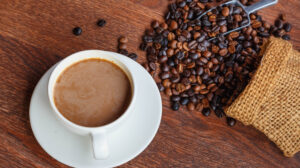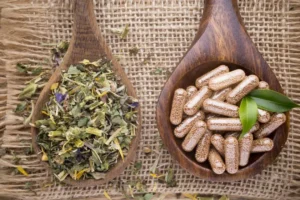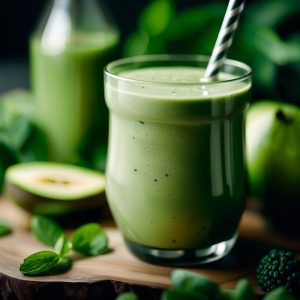 There is a considerable amount of debate surrounding energy drinks. Many people believe that they are bad for you and even dangerous. But what about Coca-Cola, one of the first energy drinks ever created? As a matter of fact, there was controversy around Coca-Cola when it was first released back in the late 1800s. In 1911, US agents seized 40 kegs and 20 barrels of Coca-Cola syrup in Tennessee because they thought the caffeine in them to be a public health hazard (1). After some time, Coca-Cola reduced the amount of caffeine, which was enough to satisfy the agents.
There is a considerable amount of debate surrounding energy drinks. Many people believe that they are bad for you and even dangerous. But what about Coca-Cola, one of the first energy drinks ever created? As a matter of fact, there was controversy around Coca-Cola when it was first released back in the late 1800s. In 1911, US agents seized 40 kegs and 20 barrels of Coca-Cola syrup in Tennessee because they thought the caffeine in them to be a public health hazard (1). After some time, Coca-Cola reduced the amount of caffeine, which was enough to satisfy the agents.
I have personally drunk dozens of energy drinks over the years. I would usually buy Monster because it was cheaper than Red Bull and I liked the taste. I really like 5-hour energy as well. The only problem with all of these energy drinks, and even coffee, is that they give me terrible stomach aches. After finally getting fed up with feeling sick for a full day, I have permanently switched over to tea. I find tea to taste better; it wakes me up, and it does not hurt my stomach.
People often cite high levels of caffeine from energy drinks as being dangerous, yet they ignore places like Dunkin Donuts and Starbucks, which offer coffee with 400 mg of caffeine. I attached a chart comparing the caffeine content of various drinks.
Energy Drink Sales and Regulations
In 2006, the worldwide consumption of energy drinks was 906 million gallons, with Thailand consuming the most per person (2). In 2006, the US retail market value for all energy drinks was 5.4 billion dollars!
Many countries have enacted strict regulations regarding energy drinks, with the US being one of the most lax countries. The European Union requires that energy drinks have a “high caffeine” label; Norway restricts the sale of Red Bull to pharmacies; and Denmark (France banned them too for a time) prohibits the sale of Red Bull completely (2). These are pretty extreme measures for a substance whose main ingredient is something that most people drink multiple times a day. Are these restrictions really warranted?
In 1980, the FDA had concerns about the safety of adding caffeine to soft drinks (soda) (2). Soft drink makers countered this by claiming caffeine was a flavor enhancer and they needed to use it. The FDA conceded this point but made the maximum amount of caffeine in these drinks to be 71 mg per 12 ounces (2). If the FDA labeled caffeine as a psychoactive drug, soft drinks (soda) containing caffeine would be labeled as drugs. Energy drinks have found their own loophole by considering themselves dietary supplements (as they contain herbs and products from natural sources) rather than drugs (2). Because they are supplements, the FDA has little control over their regulation.
Caffeine Overdose
Caffeine overdose, or toxicity, is one of the main concerns with energy drinks. Caffeine overdose resembles a bad anxiety attack with nervousness, restlessness, insomnia, and tremors (2). I believe that a few cases of people drinking cans upon cans of energy drinks and then engaging in physical activity and having heart problems or dying have been blown up to make it seem like this is a huge problem with energy drinks. If you drink a few extra large coffees from Starbucks or Dunkin Donuts, the same thing would most likely happen, except most people would probably think someone foolish for drinking 4 or 5 cups of coffee in a few hours and not blame the coffee as they would if it were red bull.
A case in point is a motocross athlete drinking eight Red Bulls in five hours and then competing, which almost killed him when his heart stopped (2). There are a few other cases like this, but these are the exceptions rather than the norm, as millions and millions of people drink energy drinks each year, and there are only a handful of deaths associated with these drinks. Amounts of caffeine considered dangerous would be 10 grams of caffeine or about 100 cups of coffee in one day.
Caffeine Withdrawal
Another likely result of consuming high amounts of energy drinks and then stopping is caffeine withdrawal. This is more of an inconvenience than a life-threatening issue. Common symptoms include headaches, depression, irritability, and fatigue (2). Most of the people I know drink only coffee, and if they do not have it for one day, they get a headache and feel less than ideal, so it is not fair to single out energy drinks on this issue.
Herbs in energy drinks
Many critics believe the combination of the different herbs in energy drinks makes them unsafe. I will discuss a few of the most commonly added herbs. Unfortunately, as these are herbs and not drugs, there are not many laboratory tests of these supplements, so I will have to rely on the little research we have, no matter how inconclusive.
Guarana: this is a caffeine-containing plant extract (3). The caffeine content of guarana is between 40 and 80 mg per gram of extract and is not always included on the label indicating the amount of caffeine per serving. Outside of caffeine toxicity, there are no known adverse effects from guarana (3). The active component in guarana is caffeine, which is found in concentrations of 3.6–5.8% (4). The amount found in energy drinks is below the amount expected to deliver therapeutic benefits or adverse effects (5).
Ginkgo biloba is derived from a tree and has been used in Chinese medicine for centuries. There have been no trials showing its effects on people, whether good or bad.
L-carnitine is an amino acid made by the liver. It has been shown to prevent cellular damage and aid in recovery from the stress of exercise (5). Has a beneficial effect on training, competition, and recovery from strenuous exercise. There are no noted adverse effects.
Taurine is similar to an amino acid (talk about it). Believed to be non-toxic at low dosages (3). It naturally occurs in seafood and meat, with consumption estimated to vary between 40 and 400 mg/day (4). Taurine has therapeutic value and is taken by people with various diseases, including congestive heart failure, cystic fibrosis, hypertension, diabetes, and seizure disorders (4). There are no studies showing adverse effects from even high levels of taurine besides minor ones like dizziness and diarrhea (4).
Ginseng is a commonly consumed herb in Asian culture. The levels of ginseng in energy drinks are believed to be safe (5). Ginseng has the potential to interact with several prescription medications (5). Many claim ginseng has health and cognitive benefits, but these have yet to be confirmed in the lab. In fact, the studies testing this found that ginseng did not offer any health benefits (safety issues associated with commercially available energy drinks). Even if ginseng did offer health benefits, the levels in energy drinks are below the minimal therapeutic dose, which is around 100–200 mg/day (4).
Caffeine: caffeine raises our heart rate and blood pressure. Caffeine can trigger heart palpitations (when your heart skips a beat). Caffeine has been shown to increase the risk of heart attack by more than double in those who are not regular coffee drinkers, most likely through its effect on raising blood pressure and increasing sympathetic nervous activity (6). Caffeine has been shown to enhance physical performance and was once a banned substance by the International Olympic Committee (2).
Calories in energy drinks
Almost all of the calories in energy drinks come from simple sugars like fructose, glucose, or high-fructose corn syrup. They are empty calories, and overconsumption of these products would likely cause weight gain. It would be the equivalent of drinking a few cans of soda a day. Fortunately, many energy drinks have diet versions without any sugar and almost no calories.
| Drink | Size | Caffeine Content | Calories |
| Red Bull | 8.4 ounces | 8o mg | 110 |
| Pepsi | 12 ounces | 38 mg | 150 |
| Black Tea | 8 ounces | 14-70 mg | |
| Diet Pepsi | 12 ounces | 36 mg | |
| Pepsi Max | 12 ounces | 69 mg | |
| 5 Hour Energy | 1.93 ounces | 200 mg | |
| Brewed Coffee | 8 ounces | 95-200 mg | |
| Monster Energy Drink | 16 ounces | 180 mg | 200 |
| Starbucks Dark Roast | 20 ounces | 415 mg | |
| Starbucks Pike Place Roast | 20 ounces | 415 mg | |
| Dunkin Donuts coffee w/ turbo shot | 20 ounces | 395 mg |
Discussion
I do not believe that energy drinks are any more dangerous than Starbucks coffee, which has 415 mg of caffeine, equivalent to about four 8.4-ounce red bull drinks. Even though energy drinks are singled out, at the end of the day, caffeine is caffeine, whether it’s from coffee, soda, or energy drinks. I believe that energy drinks are more susceptible to overconsumption, however.
I think there should be a law mandating energy drinks to display the amounts of caffeine and other herbs and have a warning saying to only consume 1 or 2 a day and talk about the health dangers of drinking too much caffeine (most, although not all, energy drinks already display this information). If people consumed energy drinks responsibly, just 1 or 2 cans a day, the health dangers would be almost nonexistent.
It is very difficult to measure the health effects of the herbal supplements that are in so many energy drinks. The interactions between all of the supplements and caffeine may be dangerous, but as of now, we do not know for certain. If the energy drinks removed most of these herbal supplements (which probably do not increase energy anyway), they may see more acceptance from critics. Anyway, most of the herbal supplements added to energy drinks are at levels where no adverse effects would be expected.
So then the issues are reduced down to the caffeine and sugar content. I already showed that coffee can have much more caffeine than energy drinks and can be abused just like energy drinks, so that leaves the sugar content. One problem with energy drinks is the amount of simple sugar they have. This can increase the risk of diabetes in people and cause weight gain from all of the calories. While black coffee contains few calories, if you add caloric creamer and sugar to your coffee, it is not much better than a sugar-laden energy drink.
Caffeine withdrawal is also a problem, but coffee is just as much to blame as energy drinks. Most of the cases associated with energy drinks and health problems came about because of strenuous physical activity following the consumption of large quantities of energy drinks. The same thing could happen if someone drinks a few coffees before exercising. If we were to ban energy drinks, we would have to ban soda too, as soda contains significant amounts of caffeine and calories and can be just as easily abused as energy drinks, yet it receives little criticism (at least for its caffeine content) compared to energy drinks.
In the end, it is probably best to limit your daily caffeine intake. If you need caffeine, it is healthiest to drink tea or coffee, not just because they have no calories or artificial sweeteners, but because they have health-promoting antioxidants. It may be dangerous to consume energy drinks before strenuous activities, which unfortunately is what energy drink companies promote. At least 5-hour energy promotes itself as a midday energy boost and not a performance-enhancing supplement. The bottom line is that energy drinks and coffee can be part of a healthy diet as long as their use is limited to one energy drink or one or two coffees a day.
Sources
- Sepkowitz, K. A. (2013). Energy drinks and caffeine-related adverse effects.Jama,309(3), 243-244.
- Reissig, C. J., Strain, E. C., & Griffiths, R. R. (2009). Caffeinated energy drinks—a growing problem.Drug and alcohol dependence, 99(1), 1-10.
- Gunja, N., & Brown, J. A. (2012). Energy drinks: health risks and toxicity.Medical Journal of Australia,196(1), 46-49.
- Clauson, K. A., Shields, K. M., McQueen, C. E., & Persad, N. (2008). Safety issues associated with commercially available energy drinks.Pharmacy Today,14(5), 52-64.
- Higgins, J. P., Tuttle, T. D., & Higgins, C. L. (2010, November). Energy beverages: content and safety. InMayo Clinic Proceedings (Vol. 85, No. 11, pp. 1033-1041). Elsevier.
- Baylin, A., Hernandez-Diaz, S., Kabagambe, E. K., Siles, X., & Campos, H. (2006). Transient exposure to coffee as a trigger of a first nonfatal myocardial infarction.Epidemiology, 17(5), 506-511.




As always…so pleased reading your posts. Finally I read something very objective about this “student drink”.
Keep going with your good job sharing us this important info Rob !
Thanks! But I am partial towards energy drinks as I prefer them over coffee. But I will admit coffee is healthier. I have been drinking tea for the past 3 or 4 weeks and haven’t had one energy drink or coffee. The news likes to cover sensational stories about people dying from energy drinks but drank responsibly they really are not dangerous
great information about energy drinks that I never knew before, I had no idea they contained so many different herbs! Lately coffee and energy drinks have been hurting my stomach, too, I will definitely be drinking more tea now.
Yes, some energy drinks contain even more herbs than I talked about. I think the companies add so many herbs so they can call the drink a “supplement” and not a food so they have more freedom putting whatever they want into the drink. But at the levels in energy drinks the herbs are harmless. It is like combining caffeine with a multi vitamin supplement. Try green or white tea, they are probably the healthiest teas although I am not sure about their caffeine content. I know black tea typically contains about 50 mg per tea bag
This weekend I was talking with a friend about your blog, and she commented me that she read an article from a Dr. saying that energy drinks can be even good for you since they have vitamins from the herbs etc. My first thought of an energy drink is that it is bad for your health. I usually don’t need any coffee or tea to wake up in the mornings (I am a morning person) nor do I use any drinks to keep or get energized. My choice would be a red bull, I like the taste of the regular one not the diet one, but I rarely drink one.
It is good to know that if you don’t exceed them you are ok to drink them. But I rather don’t. I like what you are doing, instead of having an energy drink if needed, just drink tea instead (or coffee if you prefer), this is a healthier way.
I find it shocking that you said that Norway restricts the sale of Red Bull to pharmacies. I would assume that something that would be considered dangerous would be restricted AGAINST selling in a pharmacy and would instead be found in gas stations, groceries stores, etc. I personally love Rockstar Pure Zero. It has 240 mg. of caffeine in one can and is actually very difficult to find. Most gas stations/grocery stores only sell the original Rockstar which has 160 mg. I try to limit my caffeine intake to 400 mg. max and I am never shaky or jittery – it just keeps me attentive and awake at work. Oddly enough, I can’t take 5 hour energy. It makes me incredibly jittery and my heart races even though it is only 200 mg. Could that be because its such a high amount of caffeine in such a small package so I drink it much quicker?
You should think about doing an article about turmeric. I heard that it has great antibacterial properties.
Also, coffee makes me very sick to my stomach but energy drinks do not. Any idea why?
I found this interesting article on this topic:
http://www.onemedical.com/blog/eat-well/why-coffee-makes-me-poop/
He says it better than I could!
Yeah that it pretty funny that pharmacies can sell red bull but not convenience stores! 400 mg of caffeine a day is about the limit which is considered safe. The 5 hour energy drinks do contain a decent amount of caffeine but they are also drank in one gulp versus an energy drink or coffee that takes an hour or two so that could be why it makes you jittery.
It is very strange how different energy drinks and coffee/tea affect people in different ways. I believe some of it may be psychological. Some energy drinks hurt my stomach and some do not. Sometimes the energy drinks that normally do not hurt my stomach do and ones that normally do don’t. They all contain similar ingredients so there must be some other variable not known. And I know nothing about tumeric except that Indians use a lot of it?
tomar mucha bebida energetica crees que enferme el pancreas y de la enfermedad de pancreatitis y tambien puede dar esta enfermedad por mucha comida en abundancia